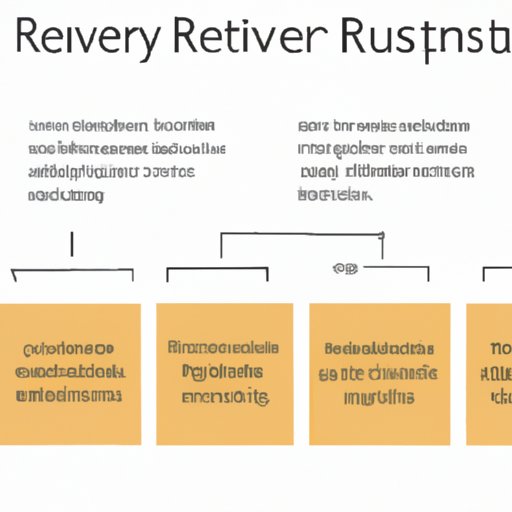Introduction
A literature review is an examination of available literature in a given field of study. It provides an overview of existing research and evaluates the strengths and weaknesses of different sources. The purpose of a literature review is to provide context for a research paper’s investigation into a particular topic. This article will explore what a literature review is in a research paper, its purpose, and the process of writing one. It will also examine how to synthesize sources and apply critical thinking skills.

Exploring the Purpose of a Literature Review in a Research Paper
When writing a research paper, the literature review is an important component. Its purpose is to place the research topic in the context of existing knowledge, allowing readers to better understand the rationale for the research. A literature review helps to identify gaps in previous research, which can be addressed by the current research.
By conducting a literature review, researchers are able to gain an understanding of the current state of knowledge in the field, as well as identify potential directions for future research. It also allows researchers to identify potential sources of bias or errors in existing research. Additionally, a literature review can help establish the credibility of the researcher by demonstrating their familiarity with the field.

Outlining the Process of Writing a Literature Review in a Research Paper
Writing a literature review involves identifying, locating, evaluating, and selecting relevant sources, then synthesizing the sources to create a cohesive narrative. The process typically begins with a search for relevant sources, such as books, journal articles, dissertations, conference proceedings, and other published material. Once the sources have been identified, they must be evaluated and selected based on relevance, accuracy, and quality.
After the sources have been evaluated and selected, they must be synthesized in order to create a cohesive narrative. This involves summarizing, analyzing, and connecting the sources in order to draw conclusions and identify patterns or trends. The literature review should be organized logically and flow smoothly from one point to the next.
Examining How to Synthesize Sources in a Literature Review
Synthesizing sources in a literature review requires both theoretical and practical knowledge. Researchers must be familiar with the theories and concepts related to the research topic, as well as the research methods used to investigate it. Additionally, researchers must be able to apply critical thinking skills in order to analyze and interpret the sources. This includes being able to recognize assumptions, evaluate evidence, and draw reasonable conclusions.
The synthesis of sources should be done in a way that is clear and concise. This involves selecting the most relevant information from each source and integrating it into the overall argument of the literature review. The synthesis should also be done in a way that is objective and unbiased. This means avoiding personal biases or interpretations of the sources, and instead focusing on presenting a balanced view of the literature.
Conclusion
In conclusion, a literature review is an essential component of a research paper. Its purpose is to provide context for the research and identify potential directions for future research. Writing a literature review involves identifying, locating, evaluating, and selecting relevant sources, then synthesizing them to create a cohesive narrative. Synthesizing sources requires both theoretical and practical knowledge, as well as the ability to apply critical thinking skills. By following these steps, researchers can write an effective literature review for their research paper.
(Note: Is this article not meeting your expectations? Do you have knowledge or insights to share? Unlock new opportunities and expand your reach by joining our authors team. Click Registration to join us and share your expertise with our readers.)
